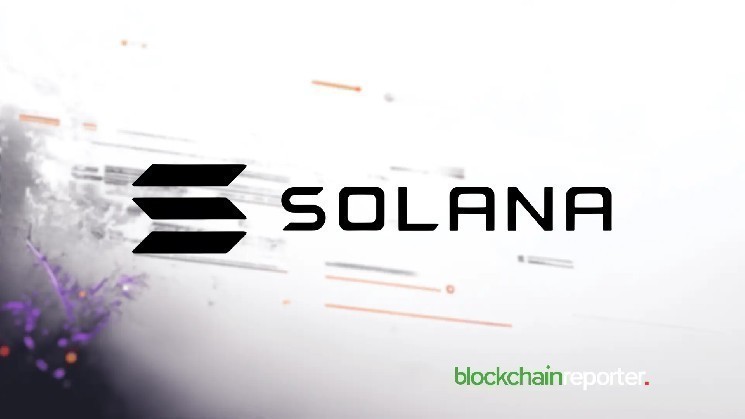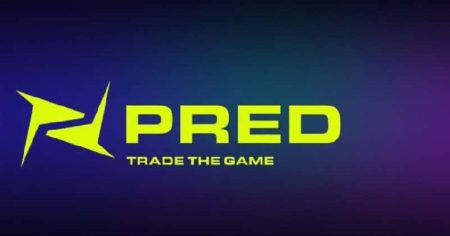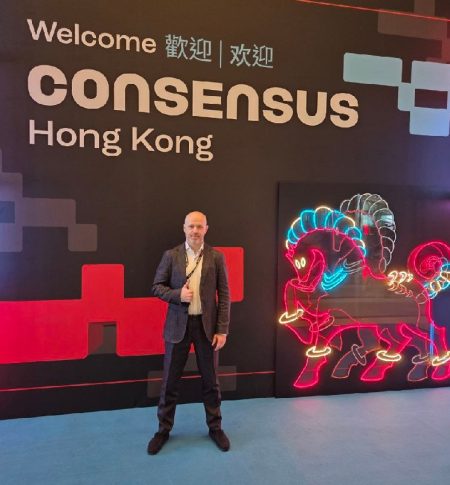Galaxy and Superstate Make History by Placing Nasdaq-Listed GLXY Shares on Solana Blockchain
In a Breakthrough for Digital Finance, Real Equities Now Live Natively on a Public Blockchain
In what many financial technology experts are calling a watershed moment for the convergence of traditional securities and blockchain technology, Galaxy Digital and Superstate have successfully placed actual Nasdaq-listed Galaxy Digital (GLXY) shares on the Solana blockchain network. This unprecedented development marks the first instance where a public company has natively issued SEC-registered equity directly on a blockchain, rather than creating synthetic versions or wrapped tokens that merely represent shares held elsewhere.
Solana, one of the leading blockchain platforms known for its high-speed transaction processing capabilities, announced the development with considerable enthusiasm, emphasizing that these tokenized shares are not mere derivatives or “wrappers” but the actual Nasdaq-listed securities themselves, now represented in digital form on the blockchain. The distinction is crucial for market participants and regulators alike, as it demonstrates a path toward legitimate integration of traditional financial instruments with cutting-edge distributed ledger technology without compromising regulatory compliance or investor protections.
How the Tokenization Process Works: Maintaining Legal and Economic Integrity
The innovative arrangement relies on Superstate, an SEC-registered transfer agent, to serve as the critical bridge between legal share ownership and blockchain representation. When shareholders elect to convert their conventional Galaxy Class A stock into tokenized versions through Superstate’s Opening Bell platform, Superstate performs two simultaneous functions: recording the ownership transition on the Solana blockchain while updating Galaxy’s official shareholder registry in real-time. This dual-record approach ensures that the tokenized shares maintain identical legal standing and economic rights as their traditional counterparts.
According to representatives from both Galaxy Digital and Superstate, this architecture provides all the benefits of blockchain technology—including 24/7 transferability on Solana’s high-performance network—while preserving the full legal and economic rights attached to traditional share ownership. For qualified investors who complete the necessary compliance checks and onboarding procedures, this means gaining the ability to hold tokenized GLXY shares in self-custody digital wallets and transfer them to other approved holders without being constrained by traditional market hours or settlement timeframes, which typically require T+1 or T+2 days for settlement finality.
Enhanced Market Infrastructure: Benefits Beyond the Headline
The joint initiative is being positioned not merely as a technological novelty but as a fundamental upgrade to market infrastructure. Galaxy Digital executives have highlighted several potential advantages of the tokenization approach, including drastically reduced settlement times, enhanced transparency through blockchain’s inherent auditability, and new possibilities for programmable finance that could automate dividend distributions, voting rights, and other corporate actions.
“This represents a significant step forward in modernizing capital markets,” said a Galaxy spokesperson. “By placing real, SEC-registered securities on a public blockchain, we’re demonstrating how traditional financial instruments can benefit from blockchain efficiency without sacrificing regulatory compliance or investor protections.” Both companies have been careful to emphasize that despite the innovative technical implementation, the tokenized shares remain fully subject to existing securities laws, regulatory oversight, and regional restrictions on trading and ownership—making this an evolution rather than a circumvention of established market rules.
Early Adoption Signals and Market Response
Industry observers report that the announcement has already triggered significant interest among institutional market participants. Several major financial institutions have reportedly begun testing the tokenization process, examining custody solutions, and analyzing settlement workflows. This early engagement suggests that sophisticated market actors see potential value in how issuer-backed digital securities might function within broader trading ecosystems.
Market structure experts note, however, that wider adoption will depend heavily on regulatory clarity regarding secondary market trading of tokenized securities, particularly around issues of market-making, best execution requirements, and how traditional investor protection mechanisms will translate to 24/7 blockchain-based trading environments. The SEC and FINRA have yet to issue comprehensive guidance specifically addressing tokenized public equities, though both Galaxy and Superstate have indicated they’ve designed their solution with existing regulatory frameworks in mind.
Potential Industry Impact and Future Outlook
Galaxy Digital executives have framed this launch as potentially establishing a template that other public companies could follow if the technical implementation and compliance frameworks prove effective. The vision presented by both Galaxy and Superstate positions the Opening Bell platform as a standardized on-ramp for issuer-backed tokenization—not as a regulatory workaround, but as a technological modernization of settlement processes and ownership records that maintains alignment with companies’ official shareholder registries.
Financial technology analysts suggest this development could have far-reaching implications for capital markets if it gains traction. “The ability to trade actual equity shares 24/7 with near-instantaneous settlement could fundamentally alter market dynamics,” noted one blockchain finance specialist who requested anonymity because they weren’t authorized to speak publicly. “We’re potentially looking at reduced counterparty risk, greater liquidity across time zones, and new models for corporate actions like dividends and voting that could be executed programmatically.”
Navigating Challenges and Setting New Standards
Whether this pioneering initiative establishes a new paradigm for public equity issuance or remains a limited experiment will ultimately be determined by several critical factors: regulatory responses across different jurisdictions, willingness of market infrastructure providers to integrate with blockchain systems, and how quickly traditional custodians, brokers, and clearinghouses adapt their operations to accommodate tokenized securities.
The companies have issued important cautions to investors interested in the tokenized GLXY shares, emphasizing the need to verify official contract addresses published by Galaxy to avoid potential scams involving counterfeit tokens. This highlights one of the novel challenges in the blockchain securities space—ensuring investors can distinguish between legitimate tokenized securities and fraudulent imitations.
For the moment, what’s undeniable is that for the first time, a SEC-registered public company stock exists natively on a public blockchain in a form that its creators assert carries full legal equivalence to traditional shares. This development alone represents a significant milestone that has captured the attention of traders, securities lawyers, financial technologists, and market structure experts worldwide. As one industry veteran put it: “Whether this becomes the future standard or remains an interesting experiment, it’s undoubtedly a crucial proof of concept that bridges two financial worlds that have long existed in parallel but rarely intersected with this level of legitimacy.”













